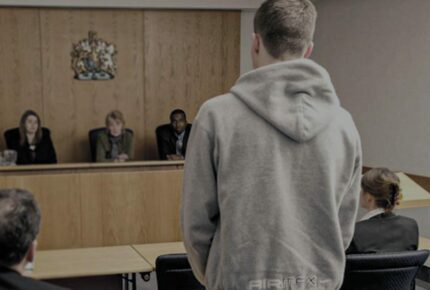

Facing a charge for actual bodily harm (ABH) can be an overwhelming and distressing experience. This serious offence carries significant repercussions, and it is crucial that you seek the guidance of a knowledgeable criminal defence solicitor who specialises in actual bodily harm cases as soon as possible, not least because engaging a skilled solicitor early can play a pivotal role in alleviating potential penalties, including prison time. In this article, we will outline the basics of actual bodily harm, explaining what constitutes this offence and the maximum sentence you could face. Additionally, we will highlight key aspects of the sentencing guidelines and demonstrate how a solicitor can work to mitigate your sentence.
What is the offence of actual bodily harm?
The offence of actual bodily harm in England is categorised under the broader spectrum of offences against the person. It is governed by Section 47 of the Offences Against the Person Act 1861.
The legal definition encompasses assaults that cause harm to the victim that interferes with their health or comfort. This harm must be more than transient or trifling but does not need to be serious or permanent. To secure a conviction for actual bodily harm, the prosecution must prove several elements:
- The defendant committed an assault or battery.
- The assault or battery caused actual bodily harm to the victim.
- The harm was more than trivial.
- The defendant intended to apply unlawful force or was reckless as to whether such force would be applied.
Examples of actual bodily harm include:
- A person punches another, resulting in a black eye.
- Someone pushes another during an argument, causing them to fall and break an arm.
- An individual throws an object at another, causing a laceration that requires stitches.
- A person kicks another, resulting in bruising and swelling.
- An individual pulls someone’s hair, causing pain and some scalp injuries.
- A person deliberately bumps into another on the street, causing them to hit their head on a lamppost and suffer a concussion.
- An individual uses excessive force to restrain someone, resulting in wrist sprains.
- A person deliberately spills hot coffee on someone, causing burns.
- Someone slams a door on another person’s hand, causing a fracture.
- A person slashes another’s clothing, causing minor cuts and abrasions when the blade contacts the skin.
These examples illustrate the broad range of physical injuries that can qualify as actual bodily harm under the law in England.
What is the maximum sentence for actual bodily harm?
The maximum sentence for actual bodily harm in England and Wales is 5 years’ imprisonment. This is in accordance with the Offences Against the Person Act 1861, which outlines the penalties for inflicting ABH. In this regard, it is more serious than common assault but less severe than grievous bodily harm.
As we explore in more detail next, the Sentencing Council guidelines provide a structured approach to sentencing for such offences. The severity of the sentence is influenced by factors such as the level of harm caused, the culpability of the offender, and any aggravating or mitigating circumstances. Aggravating factors might include previous convictions, use of a weapon, or committing the offence in the presence of others. Mitigating factors could include a lack of previous convictions, evidence of remorse, or a guilty plea at the earliest opportunity.
Overall, while the maximum sentence for ABH in England and Wales is five years, the actual sentence handed down will depend on the specific details and circumstances of each individual case, guided by the principles set out in the Sentencing Council guidelines.
What factors influence the sentencing of actual bodily harm?
When determining the sentence for the offence of actual bodily harm, a judge must weigh various factors, balancing the circumstances of the offence and the offender’s personal history. The following are the main considerations highlighted by the Sentencing Council that influence sentencing:
- Nature and Extent of Injury: The severity of the harm caused is paramount. More serious injuries will typically result in more severe sentences. ABH involves significant harm but not as severe as grievous bodily harm.
- Use of a Weapon: The introduction of weapons or any object used as a weapon can significantly elevate the seriousness of the offence and thus the severity of the sentence.
- Intent and Premeditation: Offences committed with clear intent to cause harm, or planned in advance, are viewed more harshly than those that were spontaneous or less deliberate.
- Vulnerability of the Victim: Greater protection is afforded to vulnerable victims, such as children, elderly individuals, or those with disabilities. Offenders who target such individuals may face harsher penalties.
- Impact on Victim: The physical as well as emotional and psychological impact on the victim is considered. Statements from the victim regarding their suffering are also taken into account.
- Previous Convictions: The offender’s criminal history plays a crucial role. Repeat offenders or those with a history of violent behaviour are likely to face tougher sentences.
- Offender’s Personal Circumstances: This includes age, mental health, and any personal difficulties being faced at the time of the offence. Young offenders or those with significant mitigating personal situations may receive a more lenient sentence.
- Aggravating Factors: These can include the presence of biases such as racial, sexual, or other discriminatory motivations behind the attack, committing the offence in front of children, or the involvement of multiple offenders.
- Mitigating Factors: Such factors might be self-defence, a guilty plea, expressed remorse, or any action taken to compensate or apologise to the victim.
- Other Guidance from the Sentencing Council: Judges are also guided by established sentencing ranges for ABH offences, which are designed to ensure consistency and proportionality in sentencing across similar cases.
In summary, then, judges must undertake a comprehensive assessment of both the offence and the offender, balancing aggravating and mitigating factors as outlined by the Sentencing Council, to arrive at a fair and just sentence for crimes of actual bodily harm.
How can a solicitor help with reducing the sentence for actual bodily harm?
A solicitor can provide crucial assistance in reducing the sentence for actual bodily harm through various means. Seeking professional legal help is essential because navigating the complexities of the legal system alone is challenging and risky.
Why seek the advice of a solicitor?
- Expertise: A solicitor possesses deep knowledge of the law and the court system, ensuring that the defendant’s rights are protected and the best possible outcome is pursued.
- Plea Bargaining: They can negotiate with the prosecution for a lesser charge or reduced sentence in exchange for a guilty plea.
- Mitigation: They present mitigating factors to the court, such as the defendant’s character, lack of prior offences, or circumstances of the incident, which may influence the judge to impose a lighter sentence.
- Legal Strategy: A solicitor crafts a strategic defence, potentially highlighting procedural errors, inconsistencies in the prosecution’s case, or weaknesses in the evidence.
- Representation: They provide professional representation in court, ensuring that the defendant’s case is effectively communicated and that all legal protocols are followed.
When selecting a solicitor, consider the following:
- Experience: Look for someone with specific experience in handling actual bodily harm cases. Their familiarity with similar cases can make a significant difference.
- Reputation: Research their reputation within the legal community by looking for testimonials or references from previous clients.
- Communication: Ensure that the solicitor communicates clearly and keeps you informed throughout the process. Effective communication is key to trust and understanding.
- Accreditation: Check if the solicitor holds relevant certifications or is part of professional associations affiliated with criminal law.
- Cost: Understand their fee structure and ensure it fits within your budget. Sometimes, solicitors offer initial consultations for free or at a reduced rate.
During the initial meeting, you can expect to:
- Discuss Case Details: The solicitor will ask you to recount the event leading to the ABH charge, investigating all aspects to understand the case thoroughly.
- Get Legal Advice: Based on the information provided, they will offer preliminary legal advice, outlining potential strategies and likely outcomes.
- Provide Documentation: You may be required to provide documentation or other evidence that could be relevant to your defence.
- Ask Questions: Use this opportunity to ask any questions or express concerns you have about the case or the legal process.
- Negotiate a Fee Agreement: The solicitor will discuss their fees and payment structure, ensuring there is a clear understanding of the financial aspects.
Engaging a solicitor early can significantly impact the outcome of an ABH case, providing expertise, strategy, and representation that are crucial for reducing sentences.
Where to get more help
If you have concerns regarding the potential sentence for actual bodily harm, you are not alone. These anxieties can undoubtedly be overwhelming, and solicitors are well-versed in assisting individuals with the intricate matter of sentencing. For advice and assistance on sentencing and other issues associated with the offence of actual bodily harm, reach out to the team at Stuart Miller Solicitors today. Our approachable staff possess the necessary experience to guide you through these confusing next steps.
OUR COMMITMENTS TO YOU:
-
Responsive
A legal expert will consult you within 24 hours of making an enquiry.
-
Empathetic
We will always treat you with trust, understanding and respect.
-
Specialised
Your case will be handled by an expert who specialises in your type of offence.
-
Proactive
We will take early action to end proceedings as soon as it is practically and legally possible to do so.
-
Engaged
You will be kept updated on your case at all times. We will provide a named contact available to answer your questions.
-
Caring
We understand this is a difficult and stressful time for you and your family. Our team will support you every step of the way.
-
Tenacious
We will never give up on your case. We fight tirelessly to get you the best possible outcome.

